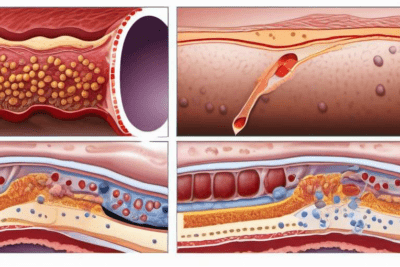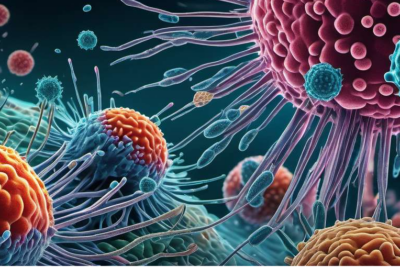
Type 2 diabetes is a widespread condition affecting populations globally, characterized by the body's inability to regulate sugar levels effectively. Understanding this chronic disease is essential for managing symptoms, preventing complications, and maintaining a good quality of life.
Characterized by insulin resistance and impaired insulin production, type 2 diabetes demands attention to lifestyle, diet, and medical care. With the right knowledge and tools, individuals can take proactive steps to manage their condition.
🔍 Seeking a breakthrough in Type 2 Diabetes management?
Discover our expert insights and innovative approaches on ‘How to Cure Diabetes’.
Click to transform your health journey today!
What you\'ll find in this article?
- What is type 2 diabetes?
- Symptoms of type 2 diabetes
- Causes of type 2 diabetes
- Risk factors for type 2 diabetes
- How is type 2 diabetes diagnosed?
- How can you manage type 2 diabetes?
- What are the complications of type 2 diabetes?
- Prevention of type 2 diabetes
- Insights on living with type 2 diabetes
- Questions Related to Managing Type 2 Diabetes
What is type 2 diabetes?
Type 2 diabetes is a long-term metabolic disorder where the body struggles to use insulin properly, leading to elevated blood sugar levels. Unlike type 1 diabetes, where the body fails to produce sufficient insulin, type 2 diabetes patients produce insulin but their cells are resistant to it.
Over time, this insulin resistance can increase, necessitating medical interventions to maintain blood sugar control. This condition is often associated with genetic and lifestyle factors.
Management typically involves a combination of lifestyle modifications, monitoring blood sugar, and possibly medication or insulin therapy.
Explore our specialized services in diabetes care 🌟.
From personalized diet plans to effective exercise routines, we have what you need to take control of Type 2 Diabetes.
Visit our services page now!












Symptoms of type 2 diabetes
Symptoms of type 2 diabetes can develop gradually and include persistent thirst, frequent urination, fatigue, and blurred vision. Early detection and treatment can prevent complications, hence recognizing these signs is crucial.
Other symptoms might encompass unexpected weight loss, increased hunger, and slow-healing sores or infections. Despite these common symptoms, some individuals might not experience any signs until the condition has progressed.
Regular screening, especially for those at higher risk, is vital for early intervention and management.
Causes of type 2 diabetes
The exact causes of type 2 diabetes are complex and multifaceted. The disease arises from a combination of lifestyle and genetic factors. While the pancreas produces insulin, resistance to this hormone by the body's cells is what characterizes type 2 diabetes.
Obesity and a sedentary lifestyle are significant contributors, with excess fat making it harder for the cells to respond to insulin.
Additionally, genetic predisposition plays a role, with family history being a notable risk factor.
Risk factors for type 2 diabetes
Several factors can increase the risk of developing type 2 diabetes. These include obesity, age, a family history of diabetes, and lack of regular exercise.
Certain ethnicities have higher rates of diabetes, and conditions like hypertension and abnormal cholesterol levels are also risk factors.
It's important to assess these risks with a healthcare provider to develop a preventive strategy.
How is type 2 diabetes diagnosed?
Diagnosis of type 2 diabetes is typically made through blood tests such as A1c, which measures average sugar levels over two to three months, or fasting plasma glucose, which measures blood sugar after an overnight fast.
Other tests may include a glucose tolerance test or random blood sugar tests. An early diagnosis is crucial for effective management.
How can you manage type 2 diabetes?
Managing type 2 diabetes requires a multifaceted approach that includes lifestyle changes, dietary adjustments, and possibly medication. Regular blood glucose monitoring is essential to keep track of sugar levels.
Adopt a balanced diet that emphasizes whole foods, fiber, and lean protein. Regular physical activity is also crucial for managing weight and insulin sensitivity.
Medications or insulin therapy may be prescribed for some individuals to help maintain blood sugar levels within the target range.
What are the complications of type 2 diabetes?
Without proper management, type 2 diabetes can lead to serious health complications affecting the heart, kidneys, eyes, nerves, and other major organs.
It's vital to maintain blood sugar levels within recommended ranges to prevent such outcomes. Regular check-ups and monitoring are essential components of diabetes care.
Prevention of type 2 diabetes
Preventing type 2 diabetes involves adopting a healthy lifestyle, including regular physical activity, maintaining a healthy weight, and a balanced diet.
Regular screening for prediabetes is also recommended, particularly for those with risk factors, to initiate early interventions.
Insights on living with type 2 diabetes
Living with type 2 diabetes means making ongoing adjustments in daily life to manage the condition effectively. Education on the disease, along with consistent healthcare support, can help individuals lead fulfilling lives.
Joining support groups and staying informed about new research and treatment options can also be beneficial.
What is the main cause of type 2 diabetes?
The primary cause of type 2 diabetes is a combination of genetic predisposition and lifestyle factors that lead to insulin resistance. A diet high in calories, lack of activity, and excessive weight, particularly around the abdomen, significantly contribute to its development.
Understanding these factors is imperative in the prevention and management of the disease.
Can you live a normal life with type 2 diabetes?
Yes, with proper management and care, individuals with type 2 diabetes can live a normal and active life. It requires a commitment to monitoring blood sugar levels, following a balanced diet, and engaging in regular physical activity.
Regular check-ups and adherence to treatment plans are also crucial elements of living well with diabetes.
What happens to you when you have type 2 diabetes?
When you have type 2 diabetes, your body doesn't efficiently use insulin, leading to elevated blood sugar levels. Over time, this can damage various organs and systems in the body if not managed properly.
It's important to follow treatment plans to mitigate these risks and maintain good health.
Is living with type 2 diabetes hard?
Living with type 2 diabetes can be challenging, but with the right support and management strategies, individuals can manage the disease effectively. Adapting to lifestyle changes and regular monitoring can be demanding but are essential for maintaining health.
Access to healthcare and a supportive network can ease the difficulties of managing the condition.
In conclusion, type 2 diabetes is a manageable condition with the right knowledge and tools. By understanding the symptoms, causes, and risk factors, practicing preventive measures, and adhering to an effective management plan, individuals with type 2 diabetes can lead healthy, active lives. Regular healthcare consultations and lifestyle adjustments are key to preventing complications and maintaining control over this chronic disease.
✨ Other articles you might be interested in:
- Understanding the process of getting tested for diabetes
- Unveiling the Truth: Can You Reverse Type 2 Diabetes?
- Reversing other types of diabetes: Possibilities and Challenges
- Understanding the differences between type 1 and type 2 diabetes
- Understanding Hypo (Hypoglycaemia): Causes, Symptoms, and Management



